Pakistan
The inevitability of confrontation
India and Pakistyan have incopmpatible mutual obsessions. Ours is Kashmir and security. What irks India is that we are stikll on the map of the world.
These mutual obsessions have not changed for the past seven decades. But if Pakistan’s concerns are understandable, and one look at the map will confirm that, what about India’s obsessions? To begin, what exactlyt are they?
According to former Indian Foreign minister Jaswant Singh,
A. Pakistan was an incorrigibly troublesome state that dreamt of parity with India it could never attain.
B. Jinnah’s only real legacy was a permanent reminder of what a tragic mistake Pakistan had been.
C. Kashmir was ‘closed history’. It was not a fitting topic for international diplomacy.
D. No oen had as much experience Islam as India did, hence it knew how to deal with Islam and Pakistan.
E. Pakistan is an illegitimate state and an illegitimate heir of Britiush Empire, Therefore it could have n legal claim to patrimony and certainly not in preference to the sole legitimate heir-India.
Jaswant Singh was right in only one aspect, namely, that India knew how to deal with Islam and Muslims. Indians proved that by attending loyally and faithfully to their Muslim rulers, many accepting Islam and following their directions for 700 years. Indeed, Muslim/Mughal India’s famne owed a lot to their Hindu subjects.
In all other aspects, Jaswant Singh was self-evidently, wrong. For instance, had there been any truth in his assertion that partition was a terrible mistake, Bangladesh, whose birth was mid-wifed by India, would surely have merged with Indian Bengal. And Indian Ocuupied Kashmir, which Indian seeks to annex, would not be in revolt, so much so that a 700,000 strong Indian occupation force is needed to suppress the uprising with regular curfews, frequent blackouts and the suspension of email and phone services for months on end to keep the population cowed and voiceless.
For infinitely smaller Pakistan to claim parity with India, as Jaswant Singh suggests, would amount to proffer insanity as an appropriate response to reality. Pakistan only seeks the notional parity all states enjoy under international law. And if partition was such a terrible mistake, why did Jaswant accompany former Prime Minister Vajpayee on the bus yatra to Lahore and acknowledge, at Minar-e-Pakistan, that India was reconciled to Pakistan’s existence? And, if that was only because such knavery was meant to mislead, it fooled no one, neither Pakistanis nor Indians. Frankly, since partition, too many signals had been sent but not received; agreements reached but never concluded while others were signed but never implemented for people to realize that there is no happy end to the Pakistan-India saga. In fact, the popular feeling on both sides of the border is that the saga is headed towards a nasty direction.
Consider the portents. Is not the current regime in Delihi led by a Hindu fanatic the blood of Gujrati Muslims on his hands? Are not Modi’s actions, speeches and policies steeped in the bitter rhetoric of religion? Do they not convey a feverish hysteria against Muslims, Pakistan and Islam? Is not Indian secularism, once rooted in conscience and humanity, now dead and buried in extremist Hindu dogma?
If there was hope that the Courts would act to curb Modi’s descent into religious bloodletting by dispensing justice to minorities it vanished when four Indian Supreme Court judges held a press conference last year, accusing Modi of manipulating the Chief Justice, via blackmail and threats, to set up benches and rosters which would ensure Modi’s henchmen would get off.
The predicament of Indian Election Commission is no less dire. Terrified commissioners ignore flagrant violations of election laws and voting procedures to favor the BJP, les their families be accosted by RSS thugs.
Even the Indian Army either consented or was set up to bomb its own soldiers in Pulwama to boost Modi’s electoral prospects.
Who then will take on Modi? The opposition in India is hardly worth its name. The once mighty Indian media too has been cowed. Social media has been morphed into lynch mobs and gangs.
Luckily for Modi, the capacity f his supporters to be duped by their own propaganda is infinite. Had the consequences of the madness he leaves in his wake not proved tragic, it would be amusing.
So desperate is Modi to lend credence to Indian lies about Balakot that my utterances on a private news channel were doctored to say the opposite of what I had said. Thanks to the deft work of our agencies, the doctoring was discovered, compelling the Indian media to publicly withdraw the false report.
Tavleen Singh, a prominent Indian journalist, wrote in January that fantaics of ‘New India’ loath Muslims and believe criticism of Modi amounts to an attack on India itself. Indians who attack him have no right to live in the country. He also said that ‘New India’ hates Islam and gloats everytime a Muslim is dragged off to a police station to be beaten or worse.
Meanwhile, Pakistan is making a concerted effort to promote its own narrative but sadly, not in the OAU, the Caribbean group, Commonwealth Secretariat etc which it should rather than leave the field open for India. Even though mountains of data of money laundering by big tycoons who fund showy BJP electoral campaigns exist, we seem slow to exploit such data. Instead, it is India which is using the platform provided by FATF to malign Pakistan and damage our economy.
Kickbacks and commissions are becoming a hallmark of Modi negotiated deals, like the Rafael fighter jet deal with France, the chief beneficiary of which was another one of the Indian Prime Minister’s acolytes. Alas, there are no signs of Pak negotiators alluding to these Indian malpractices in FATF meetings despite the fact that they clearly amount to money laundering.
Then there is the Hundi system, proof plenty in itself that money laundering exists there too. Additionally India has the largest gold market in the world. Gold trading is an open door for money laundering which is one reason why FATF is asking Pakistan to make gold purchases subject to banking transactions. But what about India? It’s difficult to believe that already happening in India.
The Pakistan dossier handed over to UN Secretary General earlier this month contains details about Indian connections to these terror groups. Cnfessions of the spy Yadav also revealed the extent to which India abetted, facilitated, financed and directed attacks on Pakistan, including raising a force of 700 militants to sabotage CPEC; and training camps in Afghanistan (66) and in India (21) run by the Kabul regime and New Delhi respectively.
Western reluctance to hold India’s feet to the fire on account of terror attacks by the Indian state and its proxies stems from the fear that India may retaliate by denying them access to its lucrative and large market. Developed countries got to great lengths to retain India’s custom, even promising to not sell similar items of weaponry to Pakistan. The onset of the US-China cold war, and India’s alliance with US, has led to Washington turning a blind eye to India’s criminal antics. The fact that Narendra Modi was himself once denied entry to America because of the genocide of Gujrati Muslims, which was overturned when he became the Prime Minister, is a reminder to what extent the US will go to indulge the likes of Modi and Netanyahu.
To sum up, Modi’s ‘New India’ comprises a mix of false flag operations and surgical strikes; persecution and murder of minorities especially Muslims, while facing no opposition at home and very litte resistance abroad. And all this happening under the rubric of a deadly rivalry, a nuclear overhang, suggesting what? That the subcontinent is being readied, willingly or unwillingly, for a major test of strength between India and Pakistan. Be that as it may, Modi’s India is not a nation worth befriending. Hence, Pakistan must remain determined to confront India resolutely, not so much as if, but when ever challenged or provoked.
The writer is a former diplomat and current affairs analyst.
Business
PM authorizes additional grant worth Rs23bln to AJK Govt: ECC
The committee also gives approval to the summary for provision of twenty three billion rupees as Additional Grant to the Azad Jammu and Kashmir Government through Technical Supplementary Grant as proposed by the Ministry of Kashmir Affairs and Gilgit-Baltistan
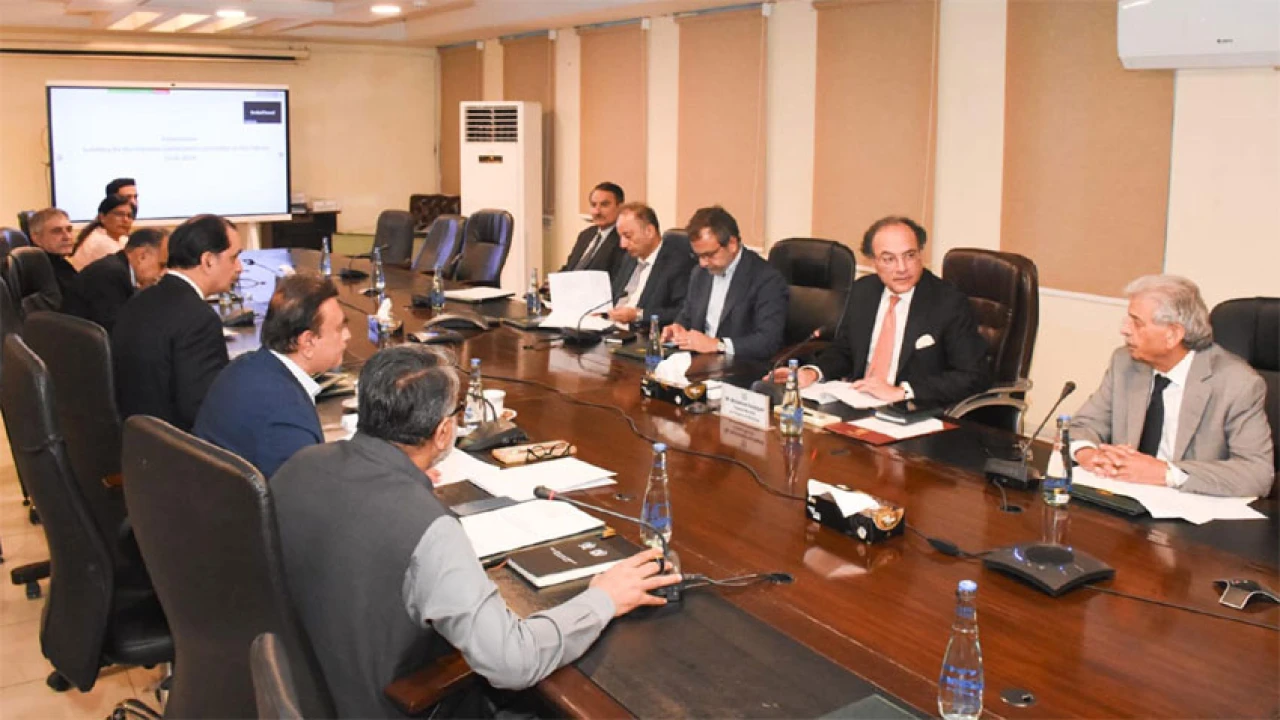
Islamabad: Prime Minister Shehbaz Sharif on Wednesday authorized an additional grant of twenty three billion rupees to the Government of Azad Jammu and Kashmir in the paramount national interest.
It was apprised in a meeting of the Economic Coordination Committee of the Cabinet in Islamabad on Wednesday (today) with Finance Minister Senator Muhammad Aurangzeb in the chair.
The committee also gave approval to the summary for provision of twenty three billion rupees as Additional Grant to the Azad Jammu and Kashmir Government through Technical Supplementary Grant as proposed by the Ministry of Kashmir Affairs and Gilgit-Baltistan.
The meeting was attended by Power Minister Sardar Awais Ahmad Khan Leghari, Minister for Industries & Production Rana Tanveer Hussain, Petroleum Minister Musadik Masood Malik and Commerce Minister Jam Kamal Khan.
Business
IEA cuts 2024 oil demand growth forecast, widens gap with OPEC
Global oil demand this year will grow by 1.1 million barrels per day (bpd)

London (Reuters): The International Energy Agency (IEA) on Wednesday trimmed its forecast for 2024 oil demand growth, widening the gap with producer group OPEC in terms of expectations for this year’s global demand outlook.
The divide between the IEA, which represents industrialised countries, and the Organization of the Petroleum Exporting Countries sends divergent signals about oil market strength in 2024 and, over the longer term, about the speed of the world’s transition to cleaner fuels.
Global oil demand this year will grow by 1.1 million barrels per day (bpd), the Paris-based IEA said in a monthly report, down 140,000 bpd from the previous forecast, largely citing weak demand in developed OECD nations.
The agency said the lower 2024 forecast was linked to poor industrial activity and a mild winter sapping gas oil consumption, particularly in Europe, where a declining share of diesel cars was already undercutting consumption.
“Combined with weak diesel deliveries in the United States at the start of the year, this was enough to tip OECD oil demand in the first quarter back into contraction,” the agency said, noting though that the OECD slump was somewhat offset by resilient non-OECD demand led by China.
In its monthly report on Tuesday, OPEC stuck by its expectation that world oil demand will rise by 2.25 million bpd in 2024. The 1.15 million-bpd difference is about 1% of world demand.
The gap between the IEA and OPEC is now even wider than it was earlier this year, when a Reuters analysis found that the 1.03 million-bpd difference in February was the biggest since at least 2008.
The two are closer in their projections for 2025. The IEA on Wednesday slightly raised its demand growth estimate to 1.2 million bpd. OPEC left its 1.85 million-bpd forecast unchanged.
Supply growth down too
The IEA also trimmed its estimates for oil supply in 2024, citing heavy outages in Brazil and logistical constraints in the U.S..
World supply will rise by 580,000 bpd this year to a record 102.7? million bpd, it said.
Last month, global supply growth was seen at 770,000 bpd.
The state of the supply-demand balance will inform decision-making by OPEC+ - which groups OPEC and allies led by Russia - on whether to extend voluntary oil output cuts into the second half of the year when it meets in June.
The IEA now estimates that the demand for OPEC+ crude plus inventories will average 41.9 million bpd in 2024, up slightly from 41.8 million bpd last month, implying a tighter overall market balance.
While OPEC on Tuesday sounded an upbeat tone on the global economic outlook, the IEA was more cautious.
Although the global demand economic outlook has improved since the end of last year, sticky inflation in major Western economies has pushed investors to dial back their expectations for central bank interest rate cuts, the IEA said.
High borrowing costs, which have been in place for months in the U.S. and Europe, dampen economic growth and oil demand.
Next year, the market looks more balanced overall, the IEA predicted, with supply rising outside OPEC.
Even if OPEC+ voluntary production cuts were to stay in place, global oil supply could jump by 1.8 million bpd in 2025, compared with this year’ 580,000-bpd increase, the agency forecast, largely on the strength of non-OPEC+ output growth.
The IEA and OPEC also differ over the demand outlook in the medium and long term.
The IEA expects oil demand to peak by 2030. OPEC thinks oil use will keep rising for the next two decades and has not forecast a peak.
Entertainment
Cannes gets rolling with strong day for women on screen
The Cannes Film Festival is taking place in France
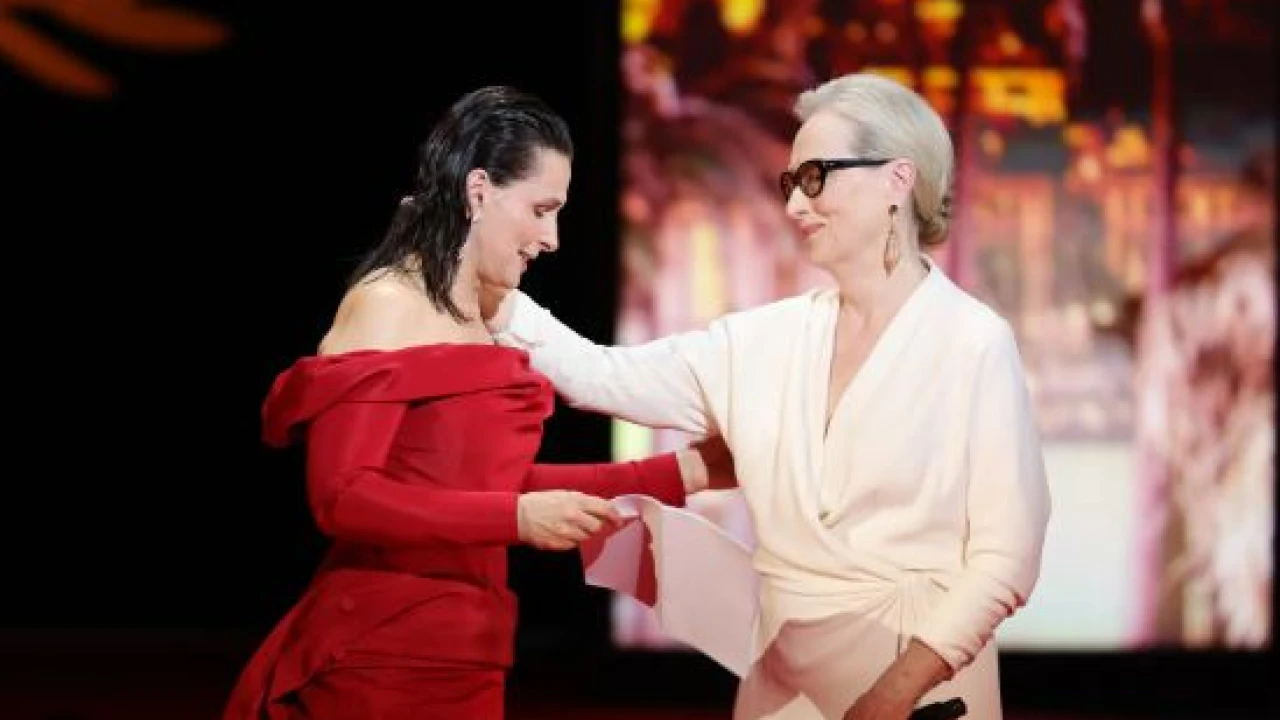
CANNES, France: The Cannes Film Festival got rolling on Wednesday with a strong day for female representation, including the new ‘Mad Max’, a Meryl Streep masterclass and the leading figure of France’s #MeToo movement.
‘Furiosa’, the latest instalment of the post-apocalyptic ‘Mad Max’ franchise, features Anya Taylor-Joy in the blood-splattering lead role, playing alongside ‘Thor’ star Chris Hemsworth.
They were due on the red carpet later on Wednesday for the world premiere, playing out of competition at the festival on the Cote d’Azur, which runs until May 25.
Taylor-Joy plays a younger version of the character portrayed by Charlize Theron in the previous film, ‘Fury Road’.
Meanwhile, two very different stories about women kicked off the race for the festival’s top prize, the Palme d’Or.
‘The Girl with the Needle’ is billed as the story of a Danish woman who set up an underground adoption agency after World War I.
And ‘Wild Diamond’ follows a French teenager seeking fame and recognition by applying for a reality TV show, from first-time director Agathe Riedinger.
Streep masterclass
One of the most iconic women in cinema, Meryl Streep, will also be delivering a masterclass, a day after receiving an honorary Palme d’Or at the opening ceremony.
“I’m just so grateful that you haven’t gotten sick of my face,” Streep, 74, joked to the audience, as she received her honorary Palme d’Or from French actor Juliette Binoche.
And there is a screening of a short film about sexual abuse, ‘Moi Aussi’ (“Me Too”) by French actor Judith Godreche.
She has become a leading figure in France’s #MeToo movement after accusing two directors of assaulting her when she was a teenager in the 1980s – even appearing before the Senate this year to call for greater protections on film sets.
It comes amid a wave of new allegations in France, most notably against veteran actor Gerard Depardieu, and persistent rumours that more big names will face accusations.
Godreche told AFP she has a nuanced view of the #MeToo movement.
“There is growing awareness, but sometimes things are announced in a way that feels too staged. It’s not very spectacular being abused, it’s not very funny, it’s not very theatrical,” she said.
Gerwig hopeful
Picking this year’s Palme d’Or falls to a jury led by Greta Gerwig, who became the first woman director to make a $1-billion movie last year with ‘Barbie’.
“Every year I cheer when there are more and more women being represented,” Gerwig told reporters on Tuesday.
“Fifteen years ago, I couldn’t have imagined the number of women represented not only at international festivals but in distribution and board conversations, and so I’m hopeful that it’s just continuing,” she said.
Still to come at the 77th edition of the festival is the hotly anticipated return of ‘The Godfather’ director Francis Ford Coppola with his decades-in-the-making epic, ‘Megalopolis’, on Thursday.
Also in the running are a Donald Trump biopic, ‘The Apprentice’, and new films from arthouse favourites David Cronenberg (‘The Shrouds’), Italy’s Paolo Sorrentino (‘Parthenope’), as well as ‘Emilia Perez’, an unlikely-sounding musical about a Mexican cartel boss having a sex change from French Palme d’Or-winner Jacques Audiard.
-
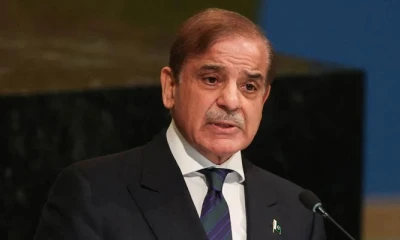
 Pakistan 2 days ago
Pakistan 2 days agoShehbaz resigns from presidency of PML-N
-
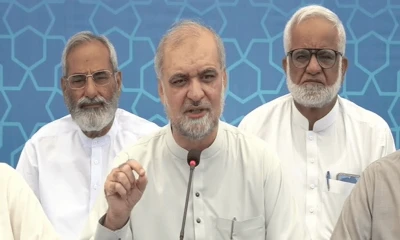
 Pakistan 1 day ago
Pakistan 1 day agoJI announces march against govt on May 16
-
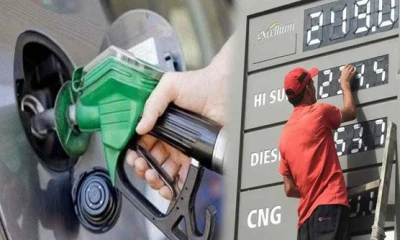
 Business 2 days ago
Business 2 days agoPetroleum prices likely to fall in Pakistan
-

 Technology 2 days ago
Technology 2 days agoFisker’s brakes can’t catch a break
-
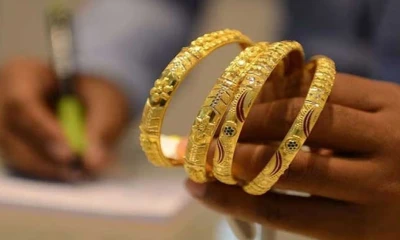
 Business 1 day ago
Business 1 day agoGold price again declines by Rs1,200 per tola
-
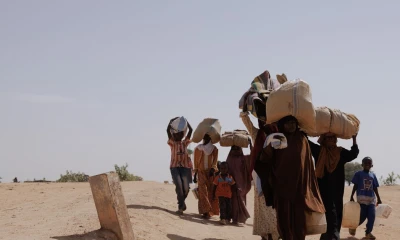
 Regional 15 hours ago
Regional 15 hours agoArmed groups are likely committing ethnic cleansings and atrocities in Darfur — again
-

 Regional 15 hours ago
Regional 15 hours ago8 surprising reasons to stop hating cicadas and start worshipping them
-
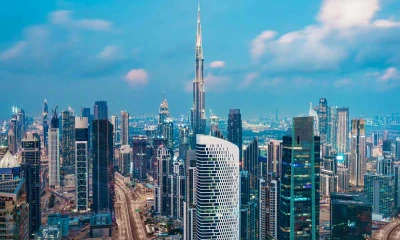
 Pakistan 23 hours ago
Pakistan 23 hours agoDubai Property Leaks expose Pakistani elite with assets worth $11bn











